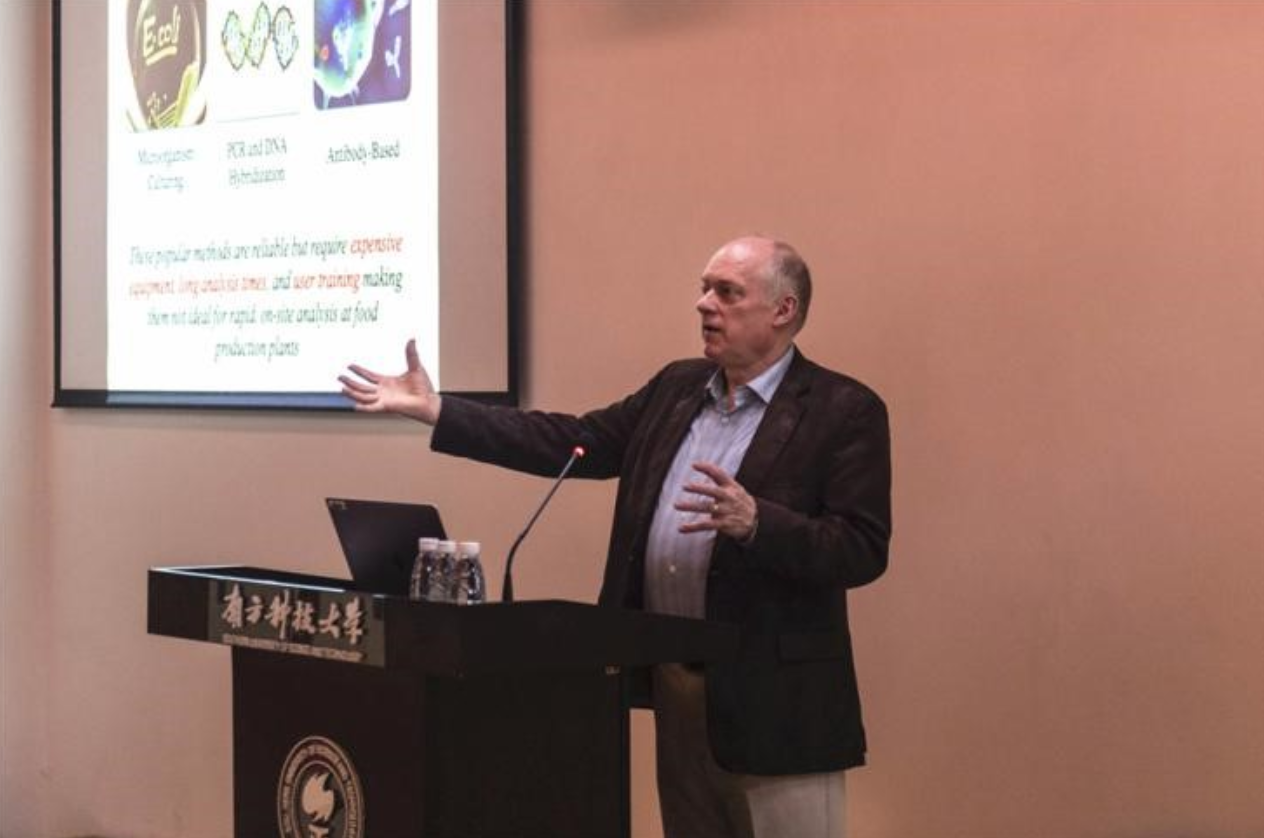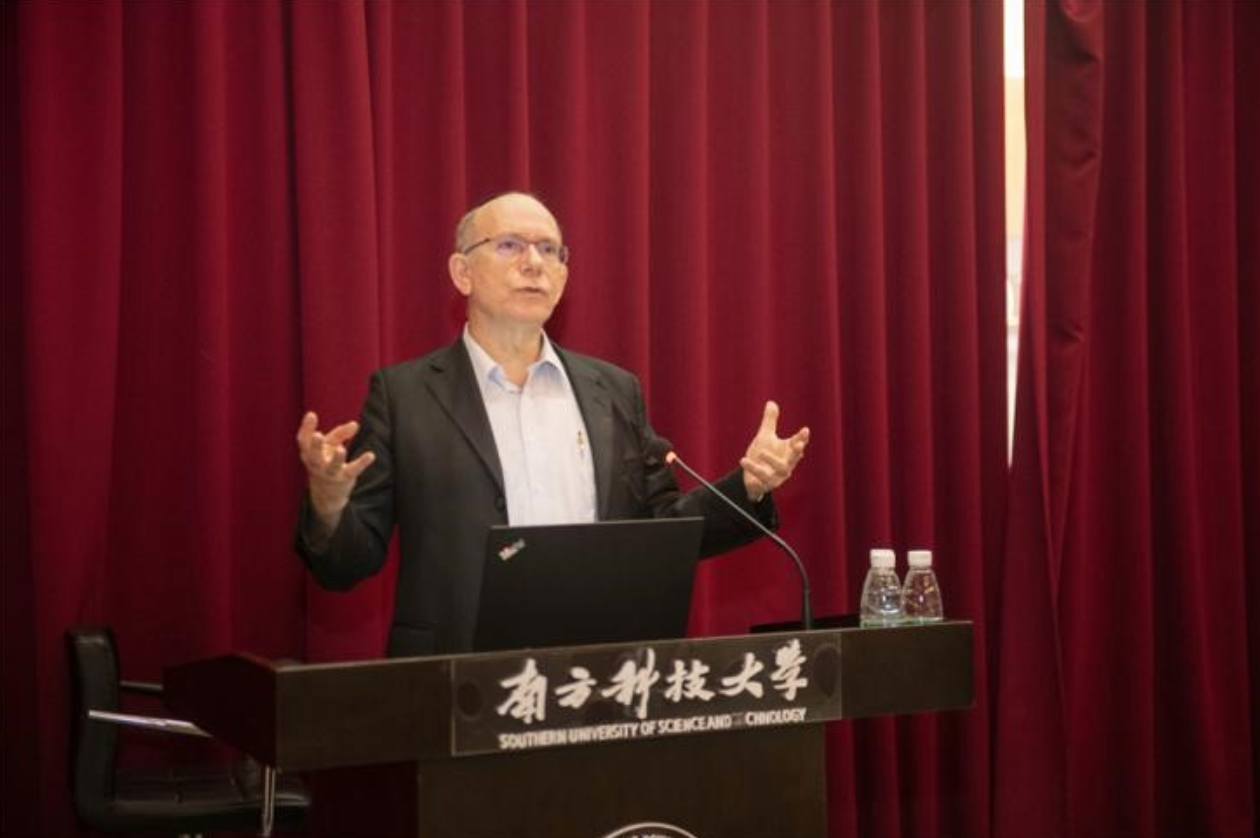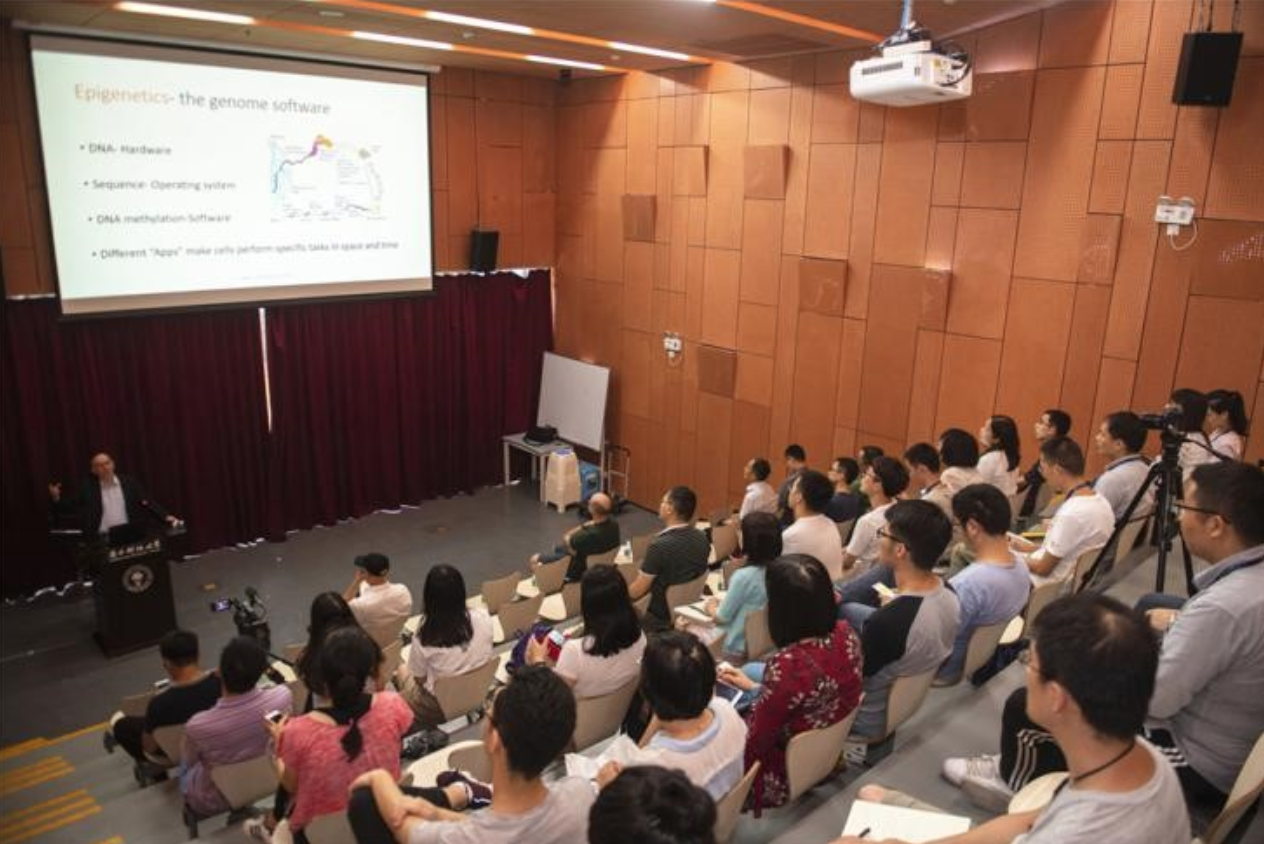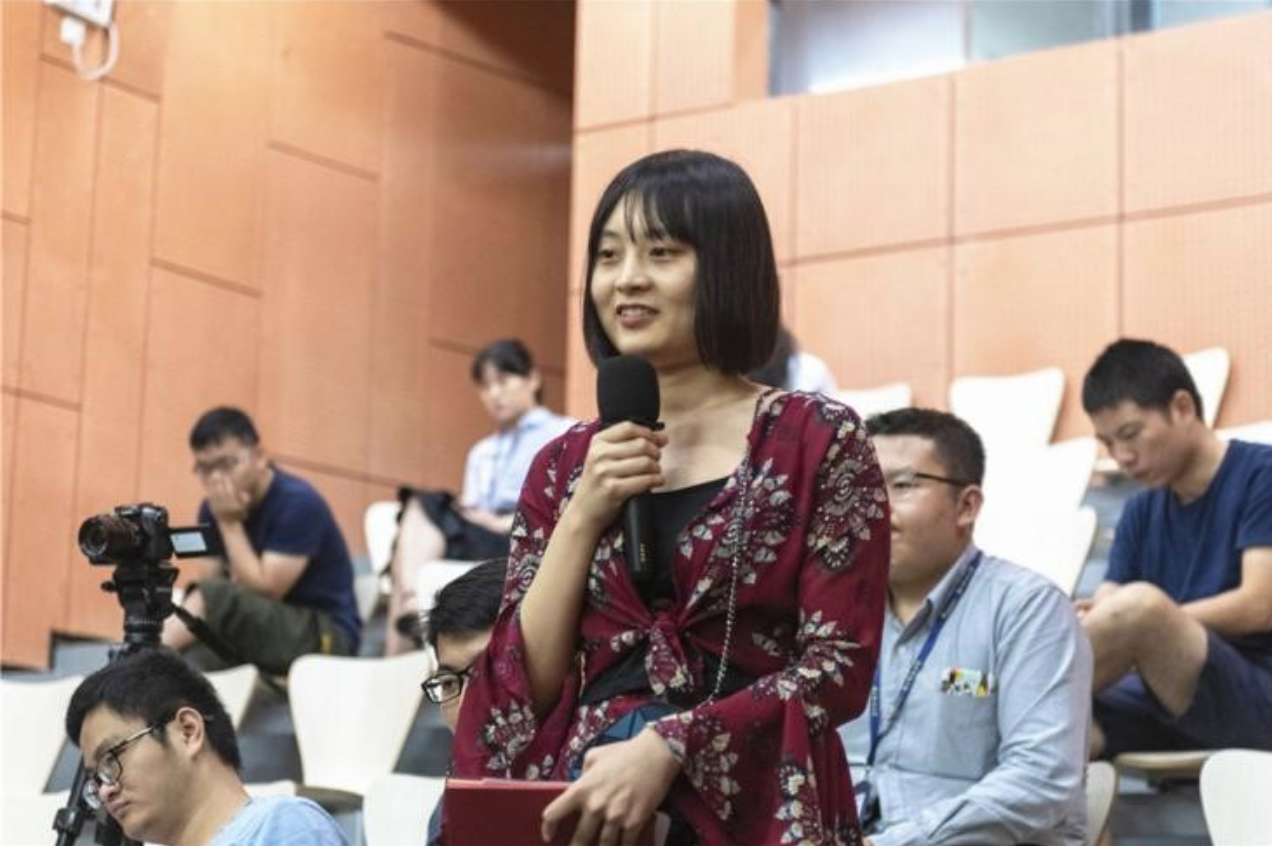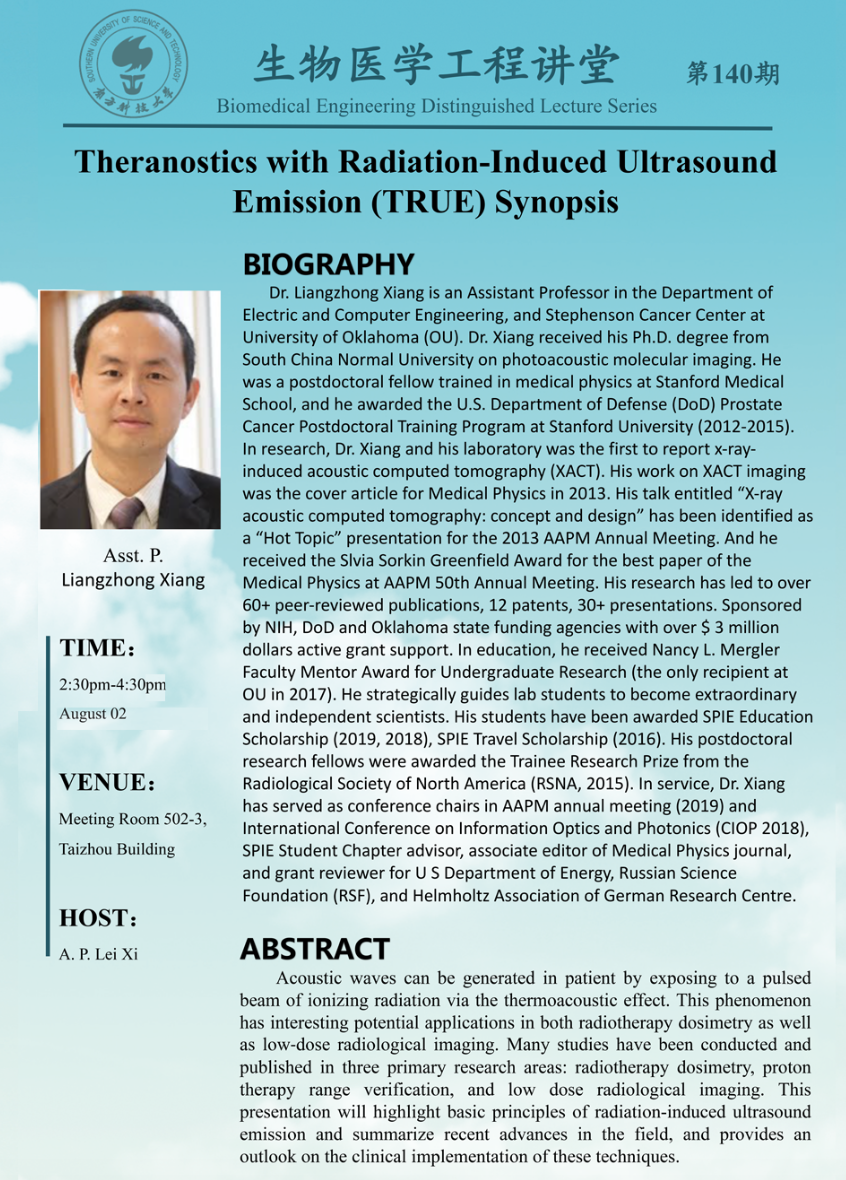Chris Edwards | 07/31/2019
Last week, Massachusetts Institute of Technology professor Timothy M Swager came to Southern University of Science and Technology (SUSTech) to give the 232nd lecture in the SUSTech Lecture Series. Professor Swager is a member of both the US National Academy of Sciences and American Academy of Arts and Sciences.
His lecture, entitled “Liquid Colloids for the Detection of Enzymes and Pathogens,” was hosted by Professor Jiang Xingyu, Head of the Department of Biomedical Engineering.
Timothy M. Swager is an internationally renowned colloidal & polymer chemist and a pioneer in chemical sensors. He is the John D. MacArthur Chair Professor of Chemistry and the Director of the Deshpande Center of Technological Innovation at the Massachusetts Institute of Technology (MIT). He has published more than 450 high-quality papers and more than 90 patents so far. His honors include the Linus Pauling Medal, the Lemelson-MIT Prize for Invention and Innovation, the American Chemical Society Prize for Creative Invention and the Carl S. Marvel Creative Polymer Chemistry Award (ACS).
In his lecture, Timothy M. Swager talked about the synthesis and application of dynamic droplets. He compared the dynamic droplet to the blinking of the smart eye. The synthesis of the droplet can be used as a sensor to detect bacteria and viruses. The team also applied it to the detection of bacteria on the surface of smart phones.
Timothy M. Swager also highlighted how complex liquid emulsions (droplets) can be reconfigured chemically or biochemically. The purpose of these configurations, he said, is to generate new transduction mechanisms to develop chemical and biological sensors. He pointed out that complex droplets behave like optical lens systems, in that small changes in surface tension can change focal length, or induce systems to switch between states. He believed that induced optical changes can be triggered by chemical, photochemical or biochemical stimuli to produce a new generation of sensors.
